
This is the third in a series of short pieces. On this occasion, Aaron goes star spotting around the main thoroughfares of the Putra stadium, Kuala Lumpur, and in the process uncovers a badminton lesson for the serious player. He also accosts the Nigerian and Australian teams.
Every night as I stroll down Jalan Bukit Bintang in search of dinner, there are annoying offers of “sexy massage” with every twenty-metre stretch and I try to avoid making eye contact. Every day, I put into practice these same soliciting skills that I have observed from the pimps as I say “hello” to unsuspecting international badminton players.
Badminton is a pretty egalitarian sport. Everyone, including you and me, and world #1’s Lee Chong Wei (MAS) , Wang Yihan (CHN), Koo/Tan (MAS), Ma/Jin (CHN) as well as legends from the 80s and 90s, all enter through the front entrance of the Putra stadium.
Under Surveillance
There is always someone reknowned milling around the public areas. The couple of times I spotted Atlanta Olympics silver medalist Cheah Soon Kit, of Malaysia, someone was stopping him to shake hands. The man looks the same,  not tubby but filled out a little over the years as have others of his era like Harjianto Arbi, (photo) the Indonesian former world #1 and World Champion in singles. Arbi is easily recognisable and was sifting through sizes of teeshirts at the Yonex booth. Two-time Olympic gold medallist in mixed doubles and current men’s doubles coach Zhang Jun, already cuddly in his heyday, has expanded to easily above 100kg.
not tubby but filled out a little over the years as have others of his era like Harjianto Arbi, (photo) the Indonesian former world #1 and World Champion in singles. Arbi is easily recognisable and was sifting through sizes of teeshirts at the Yonex booth. Two-time Olympic gold medallist in mixed doubles and current men’s doubles coach Zhang Jun, already cuddly in his heyday, has expanded to easily above 100kg.
Players frequent the dining area, which is a small indoor L-shaped hawker centre with about one dozen dual rows of rectangular tables screwed into the ground. At various times: Diju Valiyaveetil, a top 10 mixed doubles specialist from India, ate lunch one bench or barely 2 metres in front of me. Beijing Olympics Bronze medallist Maria Kristin Yulianti was ordering fries. Malaysia’s third singles representative and All England champion Hafiz Hashim was concentrating on his mobile phone  whilst teammates Zakry/Fairuzizuan snacked and laughed relaxedly. The same spot, a day later, Chen Jin, Chen Long, and Xu Chen were munching KFC for dinner and obliged a Malay man’s photo request.
whilst teammates Zakry/Fairuzizuan snacked and laughed relaxedly. The same spot, a day later, Chen Jin, Chen Long, and Xu Chen were munching KFC for dinner and obliged a Malay man’s photo request.
I watched and learned the technique and let no further chances go begging. I took a deep breath and went up to introduce myself to 2001 All England Champion Pulella Gopichand of India (now a well-respected coach), and the legend Han Jian of China. Even more special was meeting Korea’s former world #1 Lee Hyun Il as I lacked the nerve back in at the 2007 World Championships in this same Putra Stadium, then he retired and I kicked myself. It’s always a thrill to see someone live in the flesh that you have seen on TV. My habit by default is comparing how tall I am to them.
It appears that there are no great demands on a badminton stars’ time or energy such that they cannot walk around freely. Unless, one is a supernova of the order of Lee Chong Wei, Lin Dan, Taufik Hidayat, or Peter Gade, their existence remains entirely normal and well adjusted.
 Future 21s
Future 21s
No matter how many times I introduce myself, it does not become easier, much like staring down an opponent’s set point at 18-20 or finding oneself at 22-21. One has to not lose nerve: be unafraid to lose in the former circumstance; and not afraid to win in the latter.
Ever wonder why great badminton players play on single-mindedly and stave off thoughts of despondence when they are down match point say 10-20? It is because they are always playing on towards the 21-point goal, both the present and future ones. The psychology is that simple. Nothing else matters. The alternative – fear and disappointment – should never be entertained. Similarly, I pressed on to nail down my next interview.
NIGERIA
The Nigerian team told me their story. They were confident of coming to these Thomas Cup finals as they had sustained being at the top of their confederation’s ladder. Unfortunately, due to flight delays they missed their opening match-up with Malaysia.
Danjuma Fatauchi, one of their two coaches, was keenly aware that playing Malaysia would have been televised and expressed his team’s disappointment after flying 25 hours via Doha: “We wanted to show the world the grace of the Nigerian game”.
 He describes the Nigerian game as a combination of European and Chinese styles as their the coaches were taught by Chinese but their charges are all taller men so some of the European technique needed to be incorporated.
He describes the Nigerian game as a combination of European and Chinese styles as their the coaches were taught by Chinese but their charges are all taller men so some of the European technique needed to be incorporated.
AUSTRALIA
On the other hand, the Aussies could not have predicted heading to both the Thomas and Uber Cups Finals for the first time, and they were all smiles with patriotic green and gold sunscreen on their faces (for an indoor sport). Doubles specialist Ross Smith remarked, “We just wanted to beat New Zealand,” and in doing so the bonus was a ticket to Malaysia.
This is the best Australia has achieved and both singles representatives Stuart Gomez and Jeff Tho took a moment to ponder the topic of regeneration. They say there is no question who the talented juniors are but it will be interesting which of them at age seventeen or eighteen will choose to go down the professional player path as university is a competing priority.
A strong impression one is left with from meeting the Aussies is that they are living their dreams, and there is a healthy work/study-life balance in the mix. Each in the team is passionate about the sport but not defined by badminton alone. They are cheerful yet matter-of-fact. I asked Huang Chia Chi, currently unranked but who two years ago hovered around the top 20, how she felt being untroubled in defeating her Danish opponent as well as being only the second woman currently in international women’s doubles to serve forehand (the other being Jwala Gutta of India). Her response was short, she enjoyed the time spent on court again and that was that. The unspoken part was loud too, that there is another fulfilling life she wishes to get back to.
 I discovered that the Australian team were about a third caucasian, four of them of Malaysian extraction, one from Brunei, one from Hong Kong, and one of Taiwanese background. They are also a mix of juniors turned seniors, semi-retired representatives, and current international competitors.
I discovered that the Australian team were about a third caucasian, four of them of Malaysian extraction, one from Brunei, one from Hong Kong, and one of Taiwanese background. They are also a mix of juniors turned seniors, semi-retired representatives, and current international competitors.
The Competitive Desire
The Nigerians and Australians had in common their desire to show off their levels at the same time as gaining perspective about their own standard. The TUC finals is a unique team competition that offered them a chance to encounter the best in the world, which most of them would rarely get such a chance to in individual tournaments.
Indeed, playing someone a class above you is the one experience that your coach cannot teach or give to you. You have to live through it yourself to get the most out of it. And truly competitive spirits desire it.
![TUC 2010 Moments – Aaron’s angle (iii) Our roaming correspondent and preview specialist, Aaron Wong, takes us along wherever he goes and we see what he sees. This is the third in a series of short pieces. […]](http://www.badzine.net/wp-content/uploads/aaron3-australia.jpg)


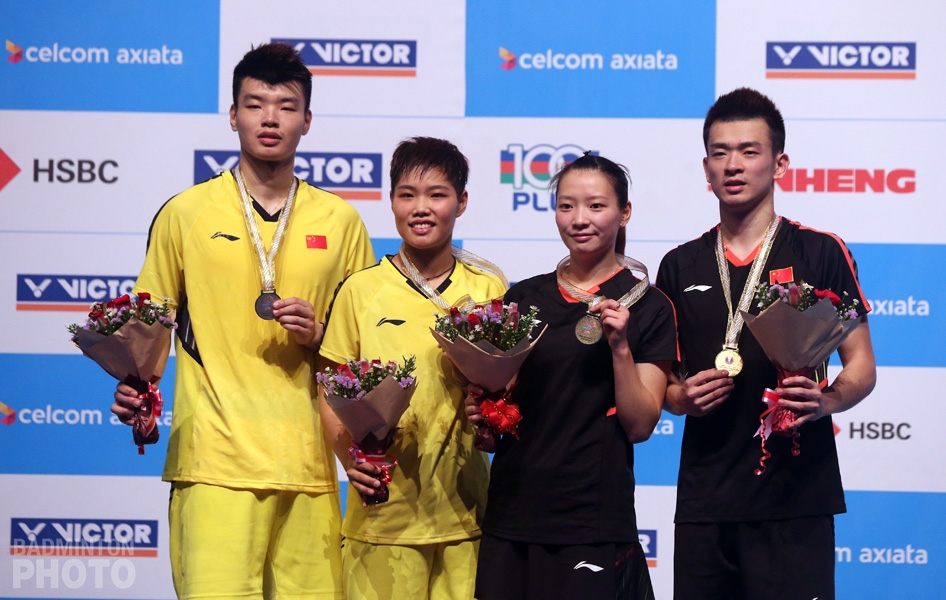
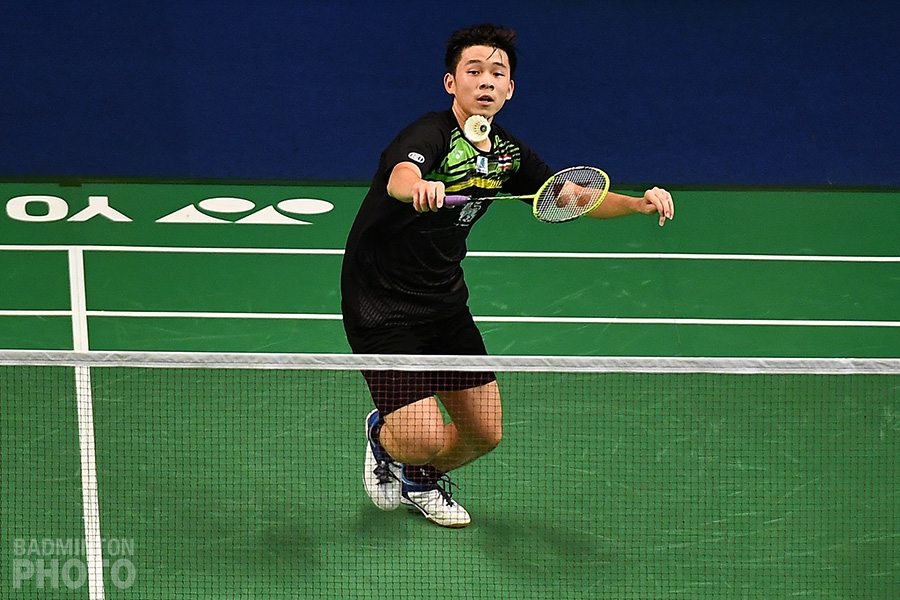
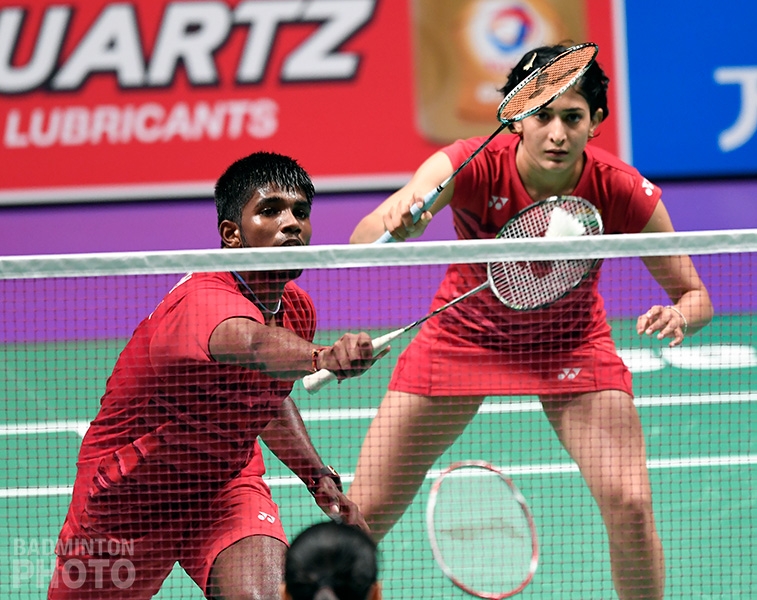
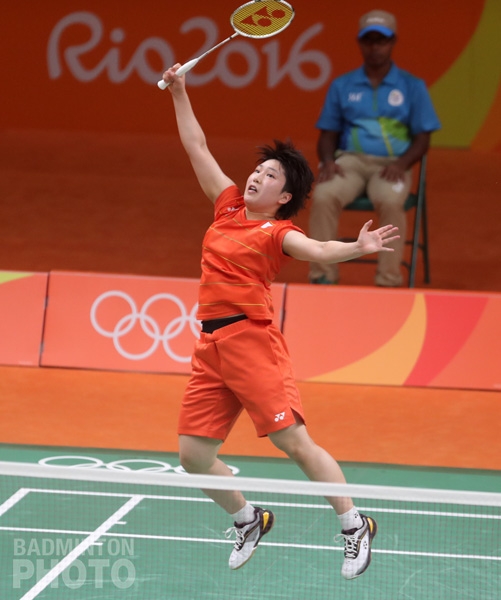
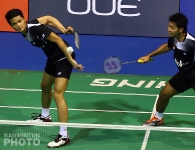
Leave a Reply